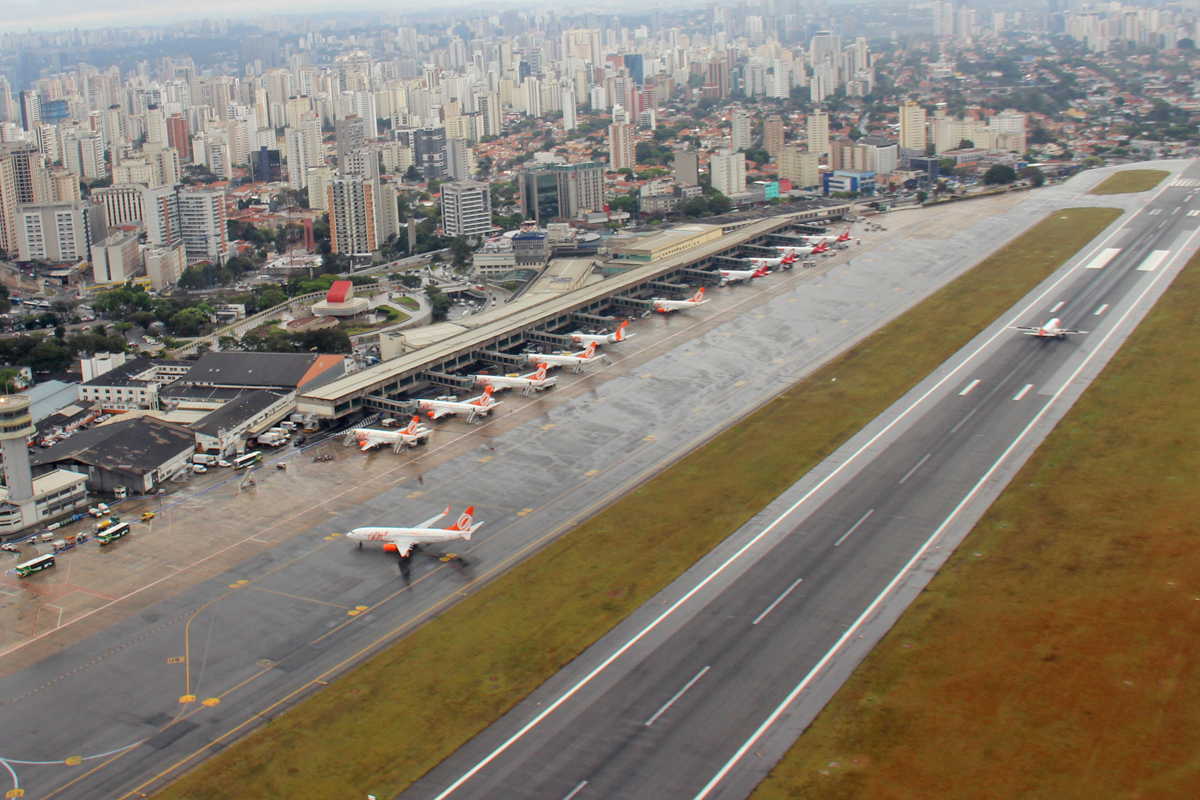The National Civil Aviation Agency (Anac), the federal agency that regulates civil aviation in Brazil, is holding its seventh round of airport concessions on Thursday, October 18. Among the 15 airports auctioned today, August 18, is Congonhas airport in São Paulo, the country’s second-largest.
The auction takes place on the São Paulo stock exchange, B3. Congonhas airport will be auctioned as part of a block, and interested parties will have to buy together the right to manage ten other airports – in the Center-West region, Minas Gerais (Southeast), and Pará (North).
The minimum bid to manage the block that includes Congonhas is R$740 million (US$143 million), in addition to investments of R$11.6 billion over the 30-year concession period.

Besides Congonhas, two other blocks are in the auction, with two airports each.
According to Anac, the 15 airports to be auctioned today account for almost 16% of all passengers in the Brazilian air market. There were more than 30 million boardings and landings in 2019 before the pandemic – more than 70% of that total being in Congonhas.
Those interested in the auction needed to submit bids by the beginning of this week, on Monday, 15. According to the Ministry of Infrastructure, all blocks received bids.
One of the obstacles in attracting investors, however, is the large number of smaller airports plugged into Congonhas, which will cause the auction’s winner to have to manage several spaces in diverse regions and potentially lower profitability.
The airports in the auction were divided into the following blocks:
- General Aviation Block (two airports) – formed by Campo de Marte, in São Paulo (São Paulo) and Jacarepaguá, in Rio de Janeiro (Rio de Janeiro). The minimum initial contribution is R$141.4 million. The estimated value for the entire contract is R$1.7 billion.
- North Block II (two airports) – integrated by the airports of Belém (Pará) and Macapá (Amapá). The minimum initial contribution is R$56.9 million. The estimated value for the entire contract is R$1.9 billion.
- SP-MS-PA-MG Block (11 airports) – composed of the airports of Congonhas, in São Paulo (São Paulo); Campo Grande, Corumbá, and Ponta Porã, in Mato Grosso do Sul; Santarém, Marabá, Parauapebas, and Altamira, in Pará; Uberlândia, Uberaba, and Montes Claros, in Minas Gerais. The minimum initial contribution is R$740.1 million. The estimated value for the entire contract is R$11.6 billion.
90% OF TRAFFIC PRIVATIZED
The Congonhas concession will be the crown jewel in the privatization of the airport management process that has been underway since 2011, when the first round of concessions took place, even before the modernization and expansion of terminals aiming at the World Cup and the Olympics.
With today’s auctions, 91.6% of air traffic in Brazil will occur at airports managed by the private sector, according to Anac.
Some of Brazil’s main airports have since been granted concessions, including Guarulhos (São Paulo), Confins (Minas Gerais) and Galeão (Rio de Janeiro). So far, more than 70% of traffic occurs at airports administered by the private sector.
The strategic importance of Congonhas for the aviation market comes mainly from its role in business travel and executive transit within the country, such as the Rio-São Paulo air bridge. Until now, the airport has been managed by Infraero, a state-owned company, with about 600 flights a day before the pandemic and more than 60,000 daily passengers.
Rio de Janeiro’s Santos Dumont airport was also scheduled to be awarded along with today’s auction. But the airport was removed from the concession block by the decision of the regulatory agencies and the Ministry of Infrastructure to balance the attractiveness of the assets.
With information from Exame

